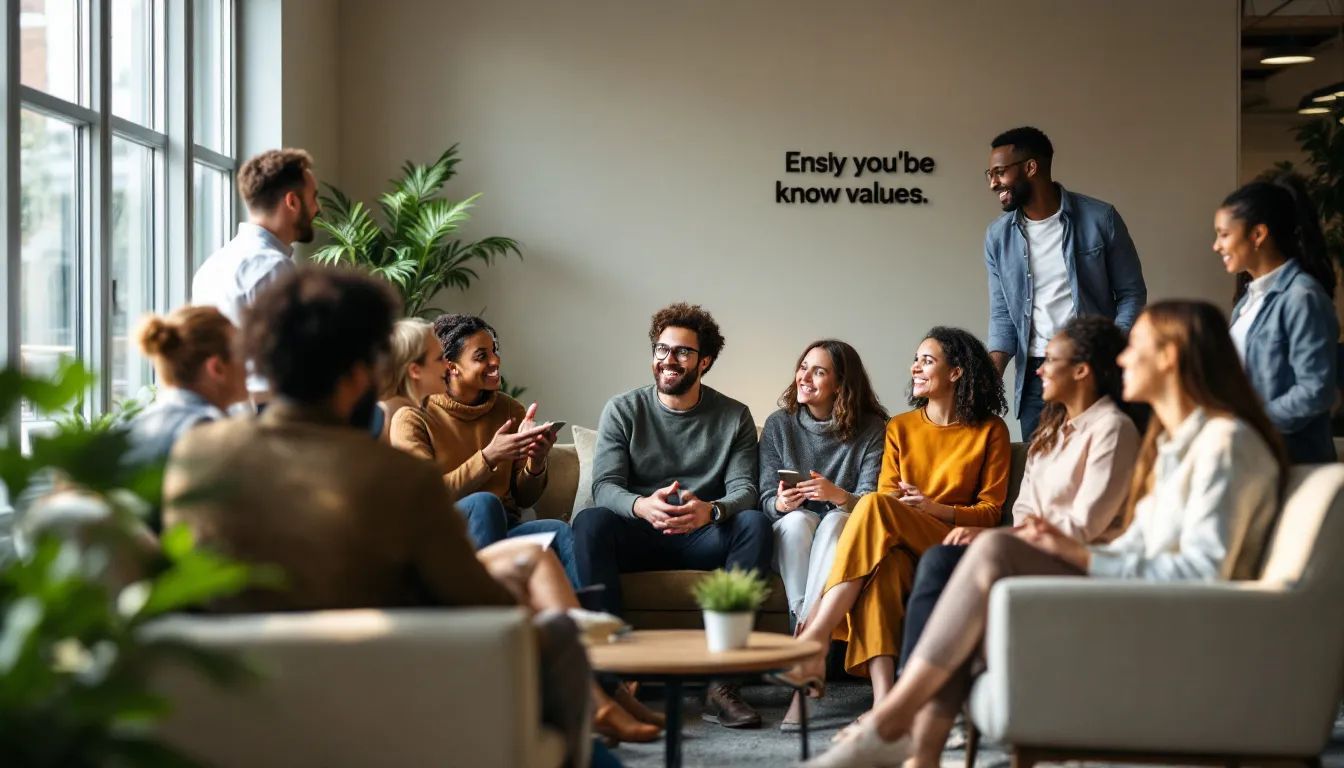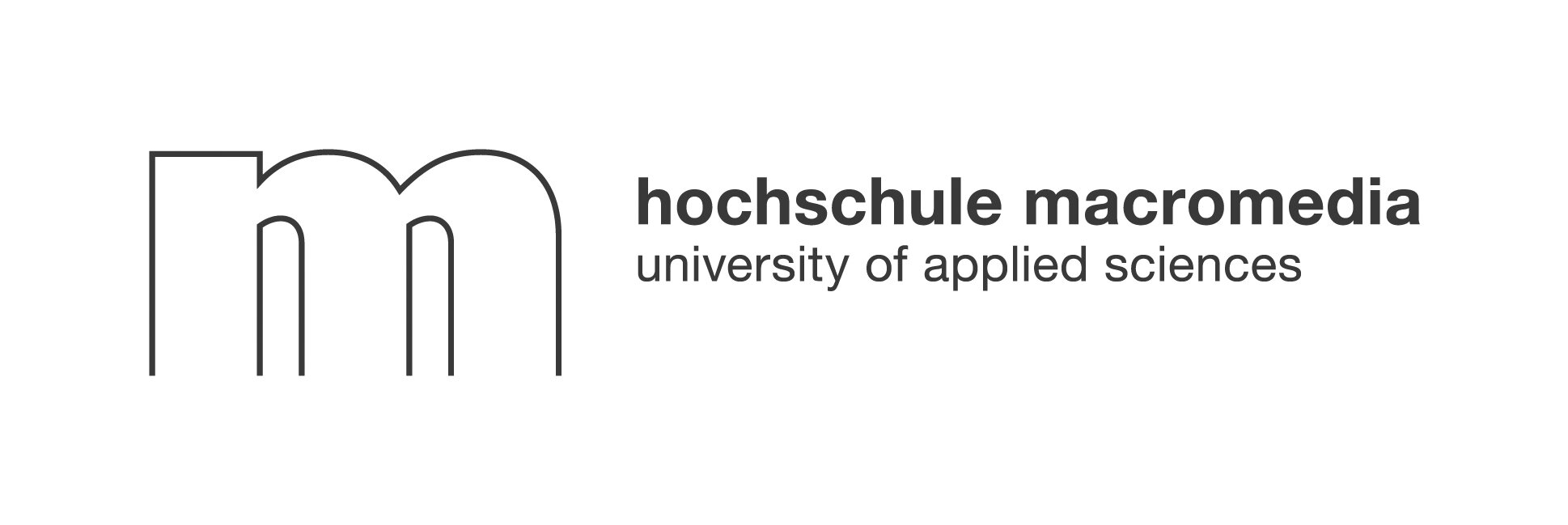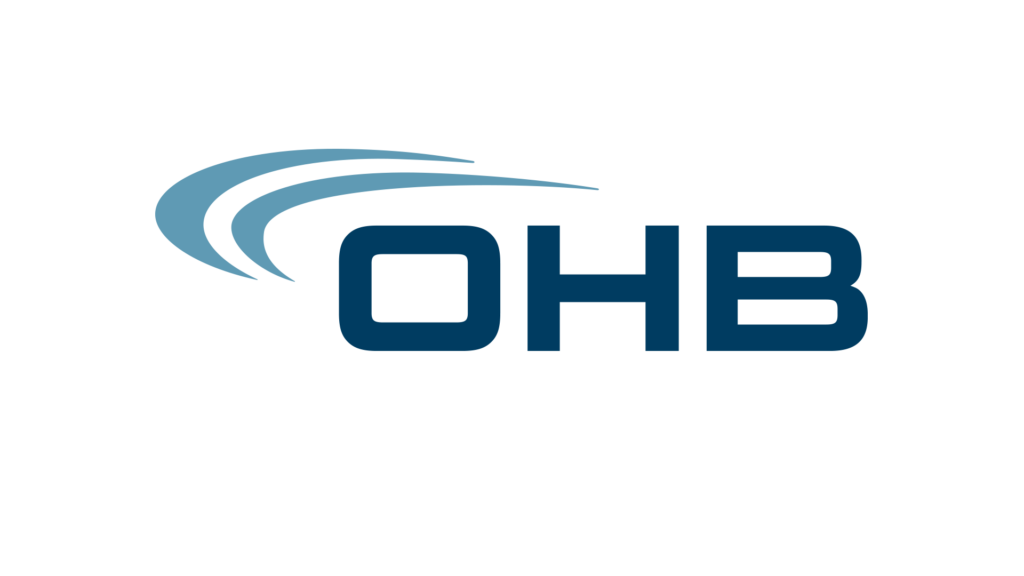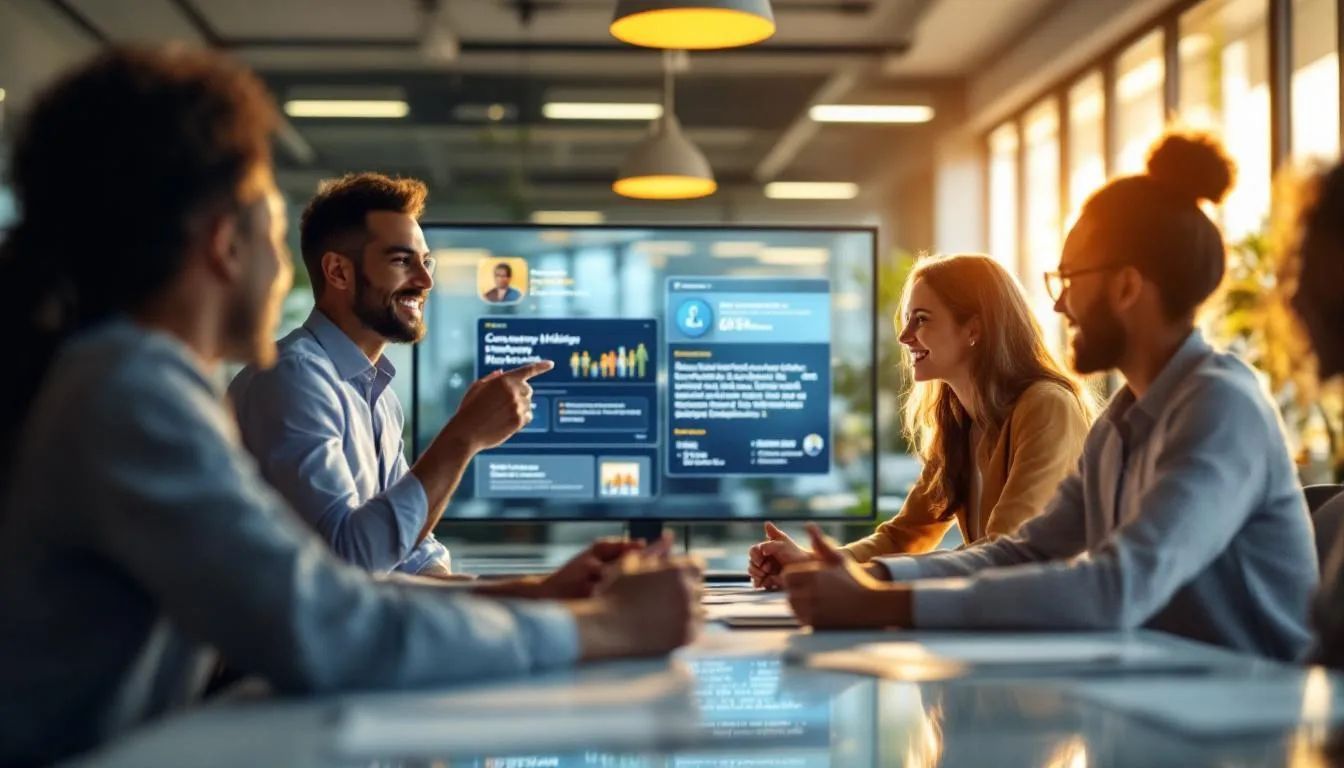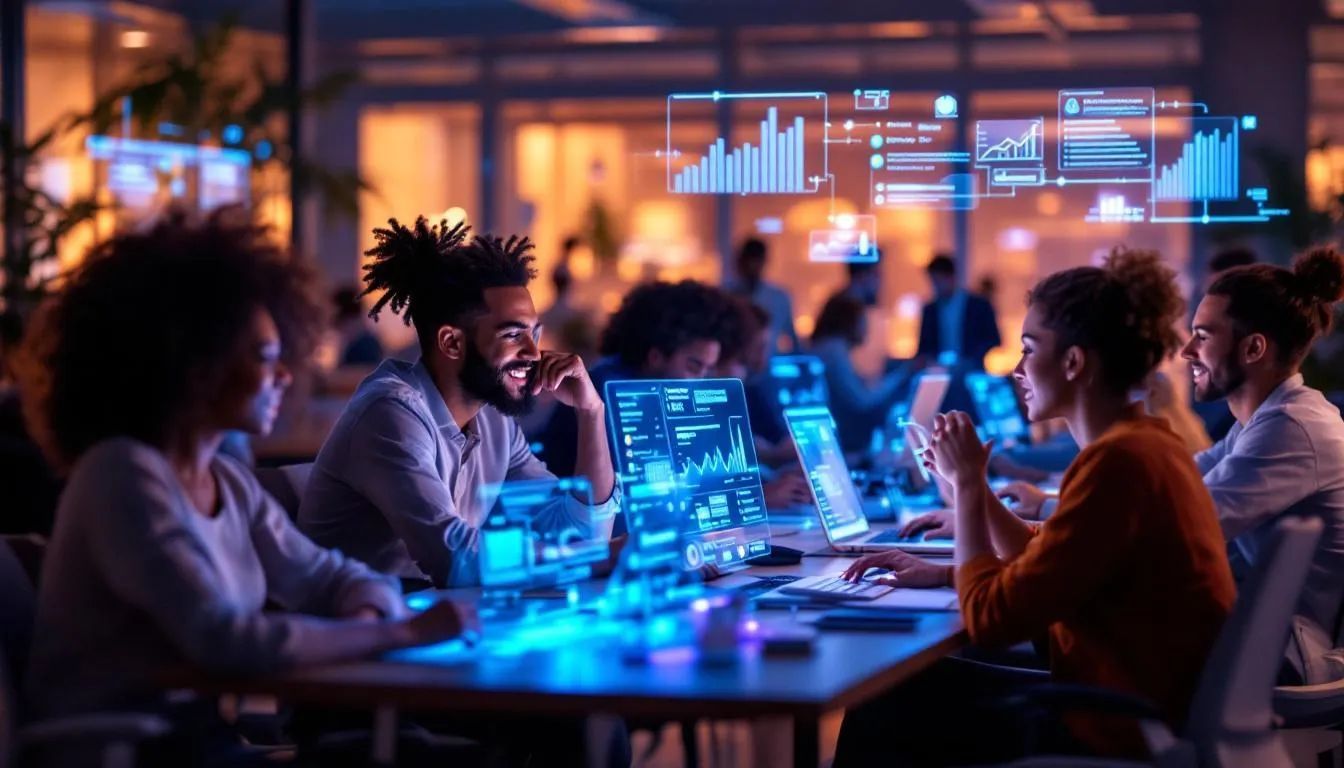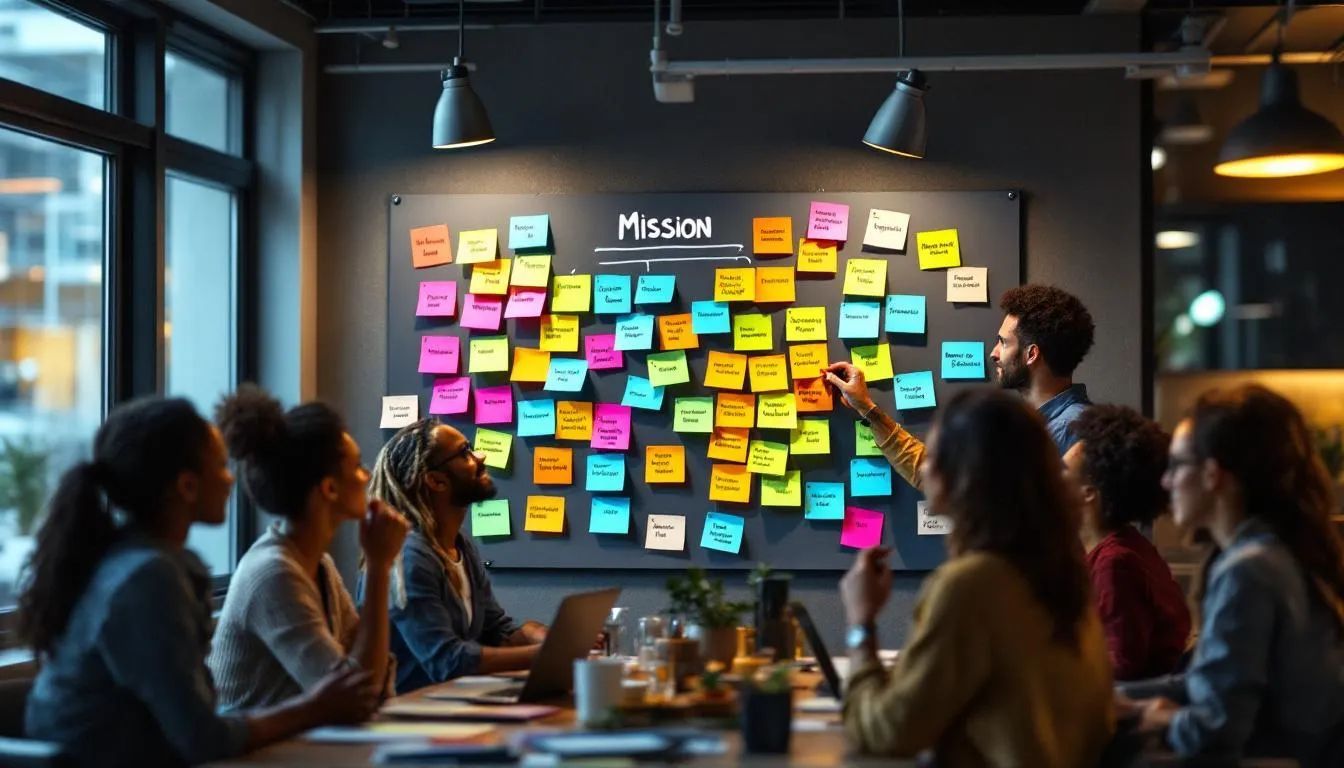What if the next workplace event you attend actually sparks genuine connection, not just small talk? In a world where hybrid work and digital overload can leave employees feeling isolated, the search for meaningful workplace events is more urgent than ever. This guide unpacks why traditional company gatherings often fall flat—and how AI-driven, purpose-built events can transform your team's culture, engagement, and well-being.
Why Meaningful Workplace Events Matter
Meaningful workplace events are more than just calendar fillers—they're catalysts for deeper engagement, collaboration, and workplace happiness. According to Gallup’s 2024 State of the Global Workplace Report, only 23% of employees report being truly engaged at work. The missing ingredient? Authentic connection.
Events that foster real relationships can unlock higher productivity, lower turnover, and stronger company loyalty. When employees feel seen and valued—not just managed—they’re more likely to contribute ideas, support each other, and stay invested in organizational goals.
“Engaged employees don’t just help businesses reach their goals. When employees feel valued, supported, and connected to their workplace, they experience a greater sense of purpose and belonging.”
— [Bishop-McCann](https://blog.bishopmccann.com/employee-engagement-events)
But not all gatherings are created equal. Many traditional events—think forced fun, generic mixers, or one-size-fits-all happy hours—miss the mark, especially for hybrid or remote teams. The future belongs to events that are intentional, inclusive, and personalized.
From Purpose to Plan: Setting Clear Intentions for Your Next Event

Define Cultural and Business Goals
Before sending out invites, clarify what you want to achieve. Are you aiming to celebrate a milestone, strengthen cross-team bonds, or spark innovation? Aligning events with both cultural and business objectives ensures every gathering serves a real purpose.
For example:
- Cultural goals: Increase belonging, reinforce company values, celebrate diversity.
- Business goals: Improve collaboration, onboard new hires, recognize achievements.
When the “why” is clear, employees are more likely to participate and feel the event’s impact.
Match Event Format to Objectives
Selecting the right format is crucial. A brainstorming session might work best as a small-group workshop, while a milestone celebration could be a hybrid event with both in-person and virtual options. For remote or distributed teams, micro-events—small, interest-based gatherings—offer flexibility and deeper engagement.
Neroia’s AI-driven platform excels here, matching event formats to objectives by analyzing employee interests and schedules, then curating small-group activities that align with both personal and organizational goals.
Building Connection: Event Elements That Spark Genuine Relationships
Inclusive Spaces and Activities
The most meaningful workplace events create space for everyone to participate comfortably. Inclusivity means more than just inviting everyone; it’s about designing activities that respect different personalities, cultures, and abilities.
Consider these inclusive event elements:
- Variety: Offer a mix of physical, creative, and social activities.
- Accessibility: Ensure all locations and digital tools are usable by everyone.
- Choice: Let employees opt into events that suit their interests and energy levels.
AI-driven team bonding, like Neroia’s curated micro-events, makes inclusivity effortless by recommending activities tailored to individual preferences and schedules.
Leadership Presence and Storytelling
Genuine connection often starts at the top. When leaders show up—not just to give speeches, but to listen and share their own stories—they set the tone for openness and trust.
Tips for leadership engagement:
- Share personal experiences that align with company values.
- Host informal Q&A sessions or small-group chats.
- Recognize individual and team contributions publicly.
“Leaders should demonstrate the value of social activity by being available to connect themselves. Show your genuine interest in others through active listening and curiosity.”
— [The Annex Oakley](https://www.theannexoakley.com/post/how-to-plan-a-meaningful-event)
8 Types of Meaningful Workplace Events (With Examples)
Not sure where to start? Here are eight workplace event ideas that go beyond the ordinary, each designed to foster genuine engagement and purpose.
Milestone Celebrations
Recognizing personal and team milestones—like promotions, project completions, or company anniversaries—boosts morale and reinforces a culture of appreciation. These events can be personalized for greater impact, such as a small-group lunch for a work anniversary or a virtual toast for remote teams.
Social Impact Volunteering Days
Purpose-driven volunteering not only benefits the community but also strengthens team bonds. Organize local clean-ups, partner with charities, or host donation drives. Neroia’s platform can match employees with volunteering opportunities that fit their interests and schedules, making participation seamless.
Learning Retreats and Hackathons
Events focused on learning and innovation—like retreats or hackathons—encourage creative problem-solving and cross-team collaboration. AI-driven platforms can help form diverse groups, ensuring everyone brings unique strengths to the table.
“Hackathons require participants to step out of their normal roles and skill sets… A short team activity can help participants loosen up, think boldly and open their minds to their colleagues’ ideas.”
— Harvard Business Review
Measuring Success: Simple Metrics to Prove Event ROI
How do you know if your workplace event was truly meaningful? Tracking the right metrics helps you understand what works—and what to improve next time.
Engagement Surveys and Sentiment
- Pre- and post-event surveys: Gauge interest, satisfaction, and perceived value.
- Real-time feedback: Use quick pulse surveys or emoji reactions during the event.
- Open comments: Allow anonymous suggestions for honest input.
Performance and Retention Indicators
- Collaboration metrics: Monitor cross-team projects or communication frequency.
- Retention rates: Track turnover before and after major events.
- Productivity data: Look for spikes in output or creativity following gatherings.
A simple way to visualize event effectiveness:
_Note: Use your organization’s own data for accurate measurement; this table is illustrative._
Common Pitfalls and How to Avoid “Mandatory Fun” Syndrome

Even well-intentioned events can backfire if they feel forced or irrelevant. Here’s how to sidestep the most common traps:
Timing and Workload Balance
- Avoid scheduling events during peak workload periods.
- Offer flexible time slots or asynchronous options for remote teams.
- Respect personal boundaries—don’t expect after-hours participation.
Respecting Diverse Preferences
- Don’t assume everyone enjoys the same activities.
- Gather input before planning (e.g., through surveys or suggestion boxes).
- Provide opt-in/opt-out choices to avoid pressure.
“The word ‘mandatory’ is often a source of dread. It’s crucial to have employees be personally engaged and invested in building stronger teams.”
— [Bonusly](https://bonusly.com/post/team-building-activities)
Turning One-Off Moments Into a Year-Round Culture of Meaning
The most impactful organizations treat events not as isolated moments, but as building blocks for ongoing culture.
Post-Event Follow-Ups and Recognition
- Send thank-you notes or highlight participants in internal communications.
- Share photos, stories, or key takeaways to reinforce the event’s value.
- Recognize ongoing contributions sparked by the event.
Creating a Living Event Calendar
- Maintain a shared, dynamic calendar of upcoming events and activities.
- Rotate event types throughout the year to keep things fresh.
- Use AI-powered platforms like Neroia to suggest new micro-events based on employee interests and engagement patterns.
Why Traditional Events Fall Short—and How AI-Driven Micro-Events Are the Future
Many workplace events still rely on outdated models: large, generic gatherings that struggle to engage hybrid or remote teams. Employees often report feeling disconnected, overlooked, or pressured to participate in activities that don’t resonate with them.
Neroia is revolutionizing this landscape by leveraging AI to foster authentic, organic employee connections through micro-events. Here’s how:
- Personalization at scale: Neroia’s AI analyzes anonymized employee data to recommend small-group activities—like yoga, cycling, or cultural exchanges—matched to individual interests and schedules.
- Effortless coordination: The platform handles logistics, from invitations to reminders, reducing planning friction for HR and managers.
- Hybrid-ready: Whether your team is remote, hybrid, or in-person, Neroia curates events that work for everyone, ensuring no one is left out.
- Continuous engagement: Instead of one-off events, Neroia helps organizations build a living calendar of micro-events, keeping connection and well-being front and center year-round.
“Neroia’s AI-driven platform empowers employees to effortlessly discover and join activities they genuinely care about—breaking down silos, sparking authentic engagement, and creating a culture where everyone belongs.”
Real-World Impact: OHB Pilot Examples
During a recent pilot with OHB, Neroia orchestrated micro-events such as yoga sessions and company runs. Employees reported increased well-being, stronger cross-team relationships, and a sense of belonging—even in a hybrid environment. AI chat-based coordination made scheduling and participation seamless, demonstrating that technology can enhance—not replace—the human element in workplace culture.
The Future of Meaningful Workplace Events
As organizations navigate the challenges of hybrid work, digital fatigue, and the need for authentic connection, meaningful workplace events will be more important than ever. The shift from mandatory, generic gatherings to personalized, AI-driven micro-events is not just a trend—it’s the future of employee engagement strategies.
By leveraging platforms like Neroia, companies can:
- Foster genuine, employee-driven connections.
- Enhance well-being, collaboration, and productivity.
- Build a culture where every event feels purposeful and every employee feels included.
“Team building activities are not a one-time silly event, but part of an ongoing process.”
— [Bonusly](https://bonusly.com/post/team-building-activities)
If your organization is ready to move beyond surface-level engagement and create a workplace where everyone thrives, Neroia offers the best way to make meaningful workplace events a reality—today and for the future.
Ready to revolutionize your team’s culture? Discover how Neroia can help you design and deliver meaningful workplace events that truly matter.
